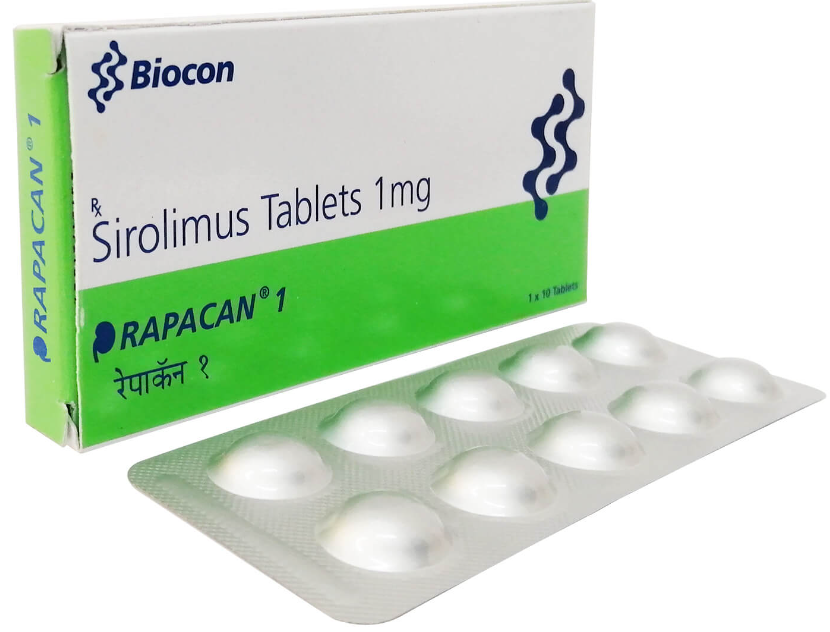| Active substance | Sirolimus |
| International Brands | Rapamune |
| Indian Brands | Rapacan |
| Made by | Biocon |
| Strength | 1mg |
| Form release | blister 10 tablets |
| Shipping time | 15 – 35 days depending from the country |
| Price per pill: | $1.5 |
| Order | through request form |
Understanding Sirolimus: A Crucial Medication in Transplant Medicine
Introduction: Sirolimus, also known by its brand name Rapamune, is a vital medication in the field of transplant medicine. It plays a crucial role in preventing organ rejection after kidney transplantation, improving the long-term success of these life-saving procedures.
How Sirolimus Works: Sirolimus belongs to a class of drugs called immunosuppressants. It works by inhibiting the body’s immune system, specifically targeting T-lymphocytes, a type of white blood cell responsible for rejecting foreign tissue, including transplanted organs. By suppressing the immune response, sirolimus helps prevent the body from attacking and rejecting the transplanted kidney.
Uses of Sirolimus:
- Organ Transplantation: Sirolimus is primarily used to prevent organ rejection in kidney transplant recipients. It is often prescribed in combination with other immunosuppressive medications to achieve optimal outcomes.
- Drug-Eluting Stents: In addition to its role in transplantation, sirolimus is also used in drug-eluting stents, which are tiny mesh tubes placed in narrowed or blocked coronary arteries during angioplasty procedures. The sirolimus coating helps prevent the recurrence of blockages in the arteries.
Dosage and Administration: The dosage of sirolimus varies depending on factors such as the patient’s weight, kidney function, and other medications they may be taking. It is typically taken orally, either as a tablet or a liquid suspension. Patients are advised to follow their healthcare provider’s instructions carefully and take the medication exactly as prescribed.
Potential Side Effects: While sirolimus is effective in preventing organ rejection, it may also cause certain side effects, including:
- Increased risk of infections
- Elevated blood sugar levels
- High cholesterol and triglyceride levels
- Mouth sores
- Skin rash
- Swelling of the hands, feet, or ankles
Conclusion: Sirolimus is a valuable medication in transplant medicine, playing a critical role in preventing organ rejection and improving the long-term success of kidney transplantation. Despite its potential side effects, the benefits of sirolimus in maintaining organ function and prolonging patient survival are substantial. Patients undergoing kidney transplantation should work closely with their healthcare providers to ensure safe and effective use of sirolimus as part of their immunosuppressive regimen.
